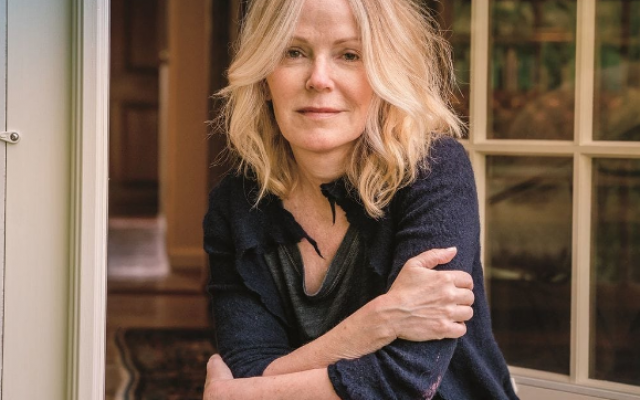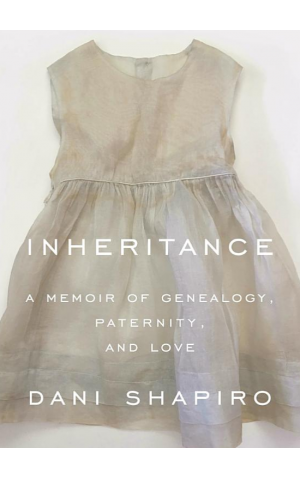‘Inheritance’ Looks at Modern Identity
Dani Shapiro’s new memoir, “Inheritance,” which examines her discovery at the age of 54 that her very Orthodox father was not her father, has been a runaway bestseller.

Dani Shapiro’s new memoir, “Inheritance,” which examines her discovery at the age of 54 that her very Orthodox father was not her father, has been a runaway bestseller. It is the current selection of the Temple Sinai Book Club, has inspired the popular podcast “Family Secrets,” and has been optioned by Hollywood.
The book tells how a seemingly innocent decision to take a popular DNA test unlocked a search for the true story of her birth and her subsequent upbringing as an Orthodox Jew.
I touched base with Shapiro during a brief time out from her whirlwind schedule as both a writer and a literary celebrity.
AJT: Why do you think your book resonates so profoundly with readers?
Shapiro: My story and hopefully the way that I’ve written it has tapped into a very specific moment in time. We’re living in a really interesting moment that has to do with secrecy and privacy and anonymity and identity and things that affect us all. My story really keys into a lot of ways from inside an experience of someone having gone through such a restructuring of identity.
AJT: How has the writing of this book, and the discovery that your biological father is not Jewish affected your Jewish identity?

Shapiro: I was always told that I didn’t look Jewish and I always knew that and kind of grappled with that. I thought I understood it at times and thought I didn’t understand it at times, but I never stopped to consider how much that was affecting my sense of belonging in the Jewish community. I had the sense of not belonging or otherness, especially when I was in the Orthodox world of my father. Once I understood that, it was liberating for me regarding my own profound sense of Jewishness. I feel more Jewish now than I ever have in my whole life because I now understand what I didn’t understand and so it’s not standing in the way of me and my Jewish identity.
AJT: When you were born into a very Orthodox Jewish world more than 50 years ago, your conception came about through what was then not very traditional science. There seems to be an irony here that has had an enormous influence on your life.
Shapiro: I haven’t spoken of this before, but it is something that really came to me as quite a thunderbolt. At some point while I was writing “Inheritance,” I was thinking back to my bat mitzvah. I insisted on becoming a bat mitzvah. I insisted on it. It’s not something that was part of my father’s Orthodox world. I didn’t need to do that. My father, I think as a way of maybe challenging me, said, “Fine, since you can’t read from the Torah on your bat mitzvah, you can learn and recite the entire book of Ruth.”
It’s about conversion and identity, “Whither thou goest, I go” and so forth, I mean. I thought about that, you know, all those years later. Conscious or not, there it is. I mean as a writer, one thing I have long understood, and I’ve always told my students when I’m teaching is that just because a metaphor is not conscious doesn’t mean it’s not a metaphor. In fact, it’s a better metaphor when it’s not conscious. I would say that my bat mitzvah was quite a metaphor for the circumstances of my life.
AJT: This book seems so intimate. It’s almost like you’re saying: My life is an open book. Is your life an open book?
Shapiro: I don’t feel that my life is an open book. I never have felt that my life is an open book, despite the fact that I’ve written 10 books. And so that’s to the first point, but it seems that we are culturally in a moment where secrecy is becoming something understood as toxic. And that’s not good for people. Which is a different subject than privacy. I really want to make that distinction.
This podcast that I started in February called “Family Secrets” has exploded in its popularity and I think the reason for that is because it’s sort of shining a light on something that was secret, something that was kept in the dark out of shame or out of fear and often in the name of love. I’m seeing a lot of relief in the sharing of something that was secret. That’s OK. You’re just a human being just like me.
Dani Shapiro will speak at a free event at 7:15 p.m. June 27 at the Georgia Center for the Book at the Decatur Public Library.



comments